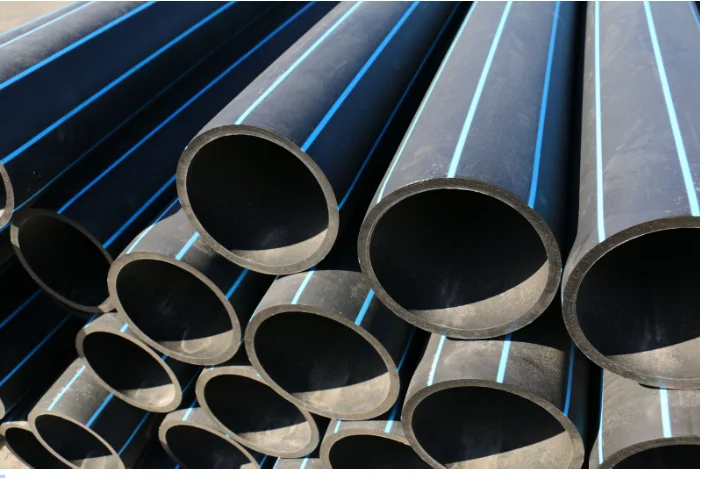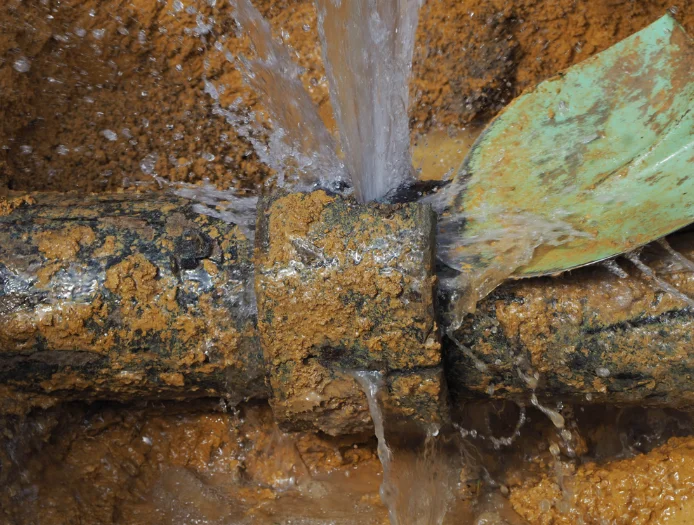Upgrading your home’s water lines is a long-term investment that affects water quality, efficiency, and maintenance costs. If you are on the fence about going for traditional metal pipes, nonmetal pipes may offer a better solution.
They resist scaling, require fewer repairs, and provide improved durability. Here are some insights on why nonmetal pipes may be the best material for your water line repair in Lincoln, CA.
Benefits of Nonmetal Pipes
Nonmetal pipes are better than metal alternatives for their resistance to rust and corrosion. Their smooth interior surface prevents mineral deposits, reducing clogs and improving water pressure.
Other key benefits include:
- Lower maintenance costs due to fewer leaks and blockages.
- Improved flexibility, allowing them to expand and contract with temperature changes.
- Better insulation helps maintain water temperature and reduce energy use.
What Sets Nonmetal Pipes Apart?
Choosing PEX (cross-linked polyethylene) and HDPE (high-density polyethylene) for water line replacement is a good choice. Unlike metal pipes, they can handle environmental changes without cracking or breaking. PEX is particularly freeze-resistant, making it an excellent choice for cold climates, while HDPE is durable enough for underground installations. These materials also make less noise, eliminating the loud banging that occurs with metal pipes.
As nonmetal pipes lose less heat than metal, they are incredibly energy efficient, helping homeowners cut down on water heating costs. This is especially useful for long pipe runs where heat loss is a concern.
Methods of Installing Nonmetal Pipes
There are different ways to install nonmetal pipes, depending on whether you are replacing old lines or adding new ones. Trenchless methods, such as pipe bursting and pipe lining, allow homeowners to upgrade water lines without digging up their yards. This is ideal for minimizing property damage and reducing labor costs.
For smaller repairs or simple rerouting, traditional trench digging may be needed. No matter the method, however, hiring a professional allows for proper installation that meets local plumbing codes.
Pipe Material Cost Comparison
One of the biggest advantages of opting for nonmetal pipes for water line installation is their affordability. While the initial cost of some nonmetal materials is lower than metal pipes, the real savings come from reduced maintenance and installation costs.
PEX pipes cost around $0.50–$2 per linear foot, while copper pipes range from $2–$5 per foot. HDPE pipes, meanwhile, are more cost-effective for underground installations because they require fewer fittings and resist soil shifts.
Regardless of your choice, labor costs for PEX and HDPE installation are lower since they are easier to work with.
Water Pressure Issues and Pipe Selection
Different pipe materials impact water pressure. PEX and HDPE have a smooth inner surface that maintains steady flow, while older metal pipes may corrode and restrict water movement.
To maintain acceptable water pressure:
- Choose larger pipe diameters for homes with high water demand.
- Avoid excessive pipe bends, which slow down the flow.
- Install a pressure regulator if your home has fluctuating water pressure.
Preventing Freezing in Nonmetal Pipes
Although some pipes like PEX are naturally resistant to freezing, extreme cold can still pose risks. Protection methods include:
- Wrapping exposed pipes with foam insulation sleeves.
- Keeping cabinet doors open to let warm air circulate near pipes.
- Letting faucets drip slightly during freezing temperatures to prevent pressure buildup.
Noise Reduction Benefits of Nonmetal Pipes
Nonmetal pipes are significantly quieter than metal options. Metal pipes tend to expand and contract, leading to water hammering, while PEX and HDPE absorb vibrations.
For homes with multiple floors or thin walls, nonmetal pipes help create a quieter and more comfortable living environment.
Permitting and Regulations for Water Line Work
Before replacing pipes, homeowners should check local building codes. In Lincoln, CA, permits may be required for major plumbing upgrades. Failing to obtain the proper permits can result in fines or forced modifications.
To stay compliant:
- Check with your local building department for required permits.
- Hire a licensed plumber who understands city regulations.
- Schedule inspections from reputable water line services after installation
When upgrading your home’s water lines, nonmetal pipes offer the best combination of durability, efficiency, and affordability. They resist corrosion, prevent leaks, and reduce long-term maintenance costs. Whether you are planning a full water line replacement or a minor repair, choosing PEX or HDPE ensures better performance and cleaner water.









